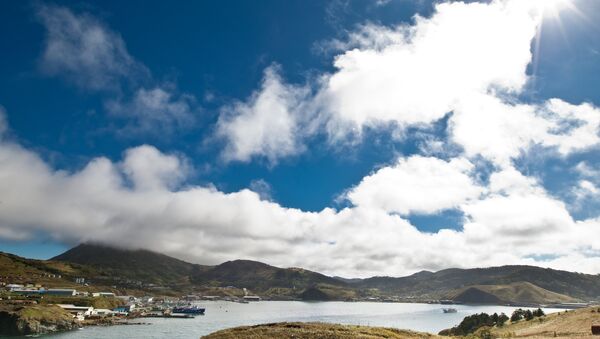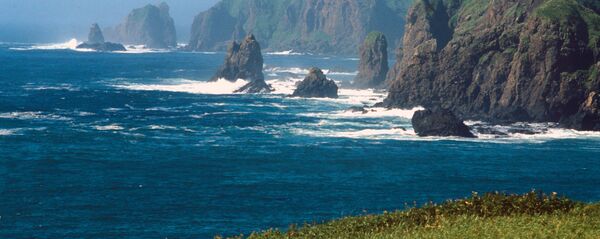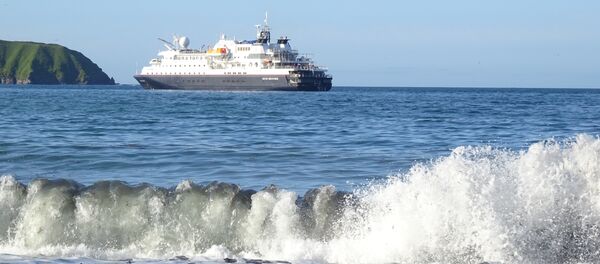Previously, Japanese prime ministers have already carried out such inspections by plane or aboard a patrol vessel, staying in Japanese territorial waters.
Moscow and Tokyo have never signed a permanent peace treaty after World War II due to a disagreement over four islands, which Russia calls the Southern Kurils and Japan the Northern Territories. The disputed islands, located in the Sea of Okhotsk, were claimed by Soviet forces at the end of the war.
Despite the fact that Abe is resolved to make progress in the territorial dispute over the South Kuril Islands, the majority of Japanese are more sceptical. While the majority insists on returning the "Northern Territories," recent polls show that young Japanese are not interested in the issue.
In turn, according to a Russian poll, 53 percent of respondents believe that the Iturup, Kunashir, Shikotan and Habomai islands are Russian and will remain part of Russia. At the same time, 42 percent said Russian-Japanese should hold talks and reach a mutual agreement on the issue. Finally, only one percent said all the islands should be returned to Japan.
Discussions have recently intensified over the territorial dispute between the two countries. Russian President Vladimir Putin and Abe discussed it at the Eastern Economic Forum in Vladivostok on September 2-3. Putin is also expected to visit Japan later this year.
Recently, the Japanese newspaper Yomiuri Shimbun reported that Tokyo considered a peace agreement with Russia, with two islands returning to Japan and the other two in the future.
According to the newspaper, Japan expects to reclaim only the Shikotan and the Habomai islets of the Kuril archipelago, not all four together with the two southernmost large islands of Iturup and Kunashir.
The idea was discussed during a meeting in 2001 between Vladimir Putin and then-Japanese Premier Mori Yoshiro. Since then it has not been discussed.
It seems that Japan has changed its approach towards Russia, but this strategy has not been made public, said Oleg Kazakov, an expert at the Center for Japanese Studies, the Institute for Far Eastern Studies.
"Abe said that politics and the economy should be separated. This means that Tokyo wants to separate the territorial problem from Russia-Japan economic cooperation. But this is not new. This was proposed in the 1990s. But Tokyo’s new strategy is secret. If they still want all four islets then what has changed?" Kazakov told Sputnik.
According to the analyst, the publication in Yomiuri Shimbun was aimed to make different groups of the Japanese establishment formulate their stance on the issue.
"Some in Tokyo still hope that Japan can get back all four islands in exchange for economic cooperation and financial aid. But this straightforward approach will not work," he said.




